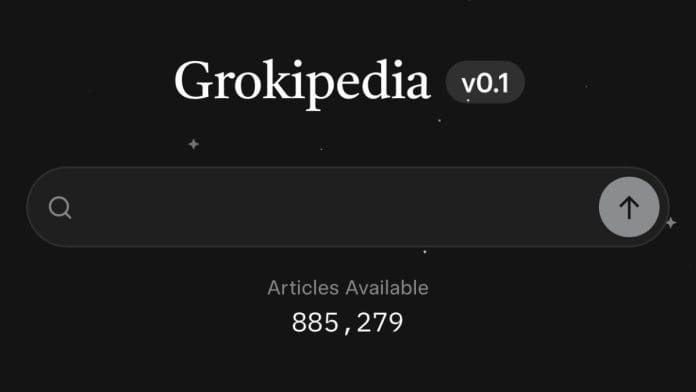New Delhi: Elon Musk has launched Grokipedia, a Wikipedia-esque online encyclopaedia powered by Grok—the AI engine owned by him.
“Grokipedia.com version 0.1 is now live. Version 1.0 will be 10X better, but even at 0.1 it’s better than Wikipedia imo [in my opinion],” he said on X, which underwent a slew of changes following Musk’s takeover.
Grokipedia has been built in response to what Musk and his ilk call “the Left-Liberal bias” entrenched in Wikipedia, the platform founded by Jimmy Wales and Larry Sanger. Sanger departed early on in the online encyclopaedia’s journey, and has since become notorious for calling out its unofficial acquisition. According to him, Wikipedia is edited by a select group of Leftists who wield control over what was projected to be a neutral platform.
Grokipedia is the natural extension of conversations like this, which point to a deeply polarised, complex online media landscape. Grokipedia currently has 8,85,279 articles available.
However, Sanger himself, in a detailed thread he posted on X, has pointed out errors and misreadings on his Grokipedia page. But he added that the article has sourced publicly available information on him, which does not feature on his Wikipedia profile. He called these details “correct, relevant, and interesting.”
But, just like Grok, its engine, Grokipedia is also prone to guesswork and the invention of facts. “Well, Grokipedia is pushing a narrative here that is just wrong,” said Sanger on X, referring to a thread of information in which Sanger talks about what he envisaged for Wikipedia regarding the “formal expertise” of editors.
“This is sloppy, free-floating association, attributing to me ideas advocated by others,” he went on to add, referring to conversations about a supposed anti-Hindu bias prevalent on Wikipedia.
Grokipedia makes strong assertions in its article on Sanger: “In 2025, he extended these critiques to anti-Hindu and anti-India biases, arguing that Wikipedia’s articles on Indian history, politics, and culture exhibit a pattern of negative framing influenced by left-liberal editorial control, including downplaying Hindu achievements and amplifying critical narratives from Western or opposition sources. He has described this as part of a broader “war on India,” where financial influences and activist editing undermine factual balance.”
In his X thread, Sanger calls out the engine’s hallucination.
“While I have spoken very broadly and vaguely (on purpose) of an anti-Hindu bias, I have not given any details, ever. The last sentence below is just bullshittery that I do not recognize as applying in any way to myself,” he said.
Also read: In ANI vs Wikimedia, Round 1 goes to India’s tech law. The US firm has taken a beating twice
How Grokipedia describes Musk
Grokipedia’s pages appear to follow the same format as Wikipedia, with subhead divisions and a detailed list of reference articles at the bottom of the page. For example, the page on Narendra Modi contains 315 reference articles, mostly from news outlets.
The Washington Post, while noting that Grok shares similarities with Wikipedia, writes that its functioning is more “opaque”—and in certain cases, more Right-leaning.
For example, says The Post, Grokipedia’s page on gender relegates the term’s meaning to only two genders—that which is biologically assigned at birth. This also mirrors Musk’s own positioning on gender. In an interview, the Tesla founder referred to his transgender daughter as “dead, killed by the woke virus.”
Grokipedia is in the limelight for the manner in which it describes Elon Musk. Critics argue that it brushes across several of his controversies, while doling out glowing praise when it comes to his achievements.
“Musk’s public persona blends innovative visionary with irreverent provocateur, amplified through prolific activity on X (formerly Twitter), where he shares memes, engages followers directly, and posts over 20,000 public tweets analyzed for themes of humor, product promotion, and personal anecdotes,” is how Grokipedia describes its founder. “His unfiltered style, including jokes about private matters and rapid-fire commentary, contrasts traditional CEO restraint, positioning him as a meme-lord billionaire who leverages social media for influence beyond business.”
(Edited by Theres Sudeep)






